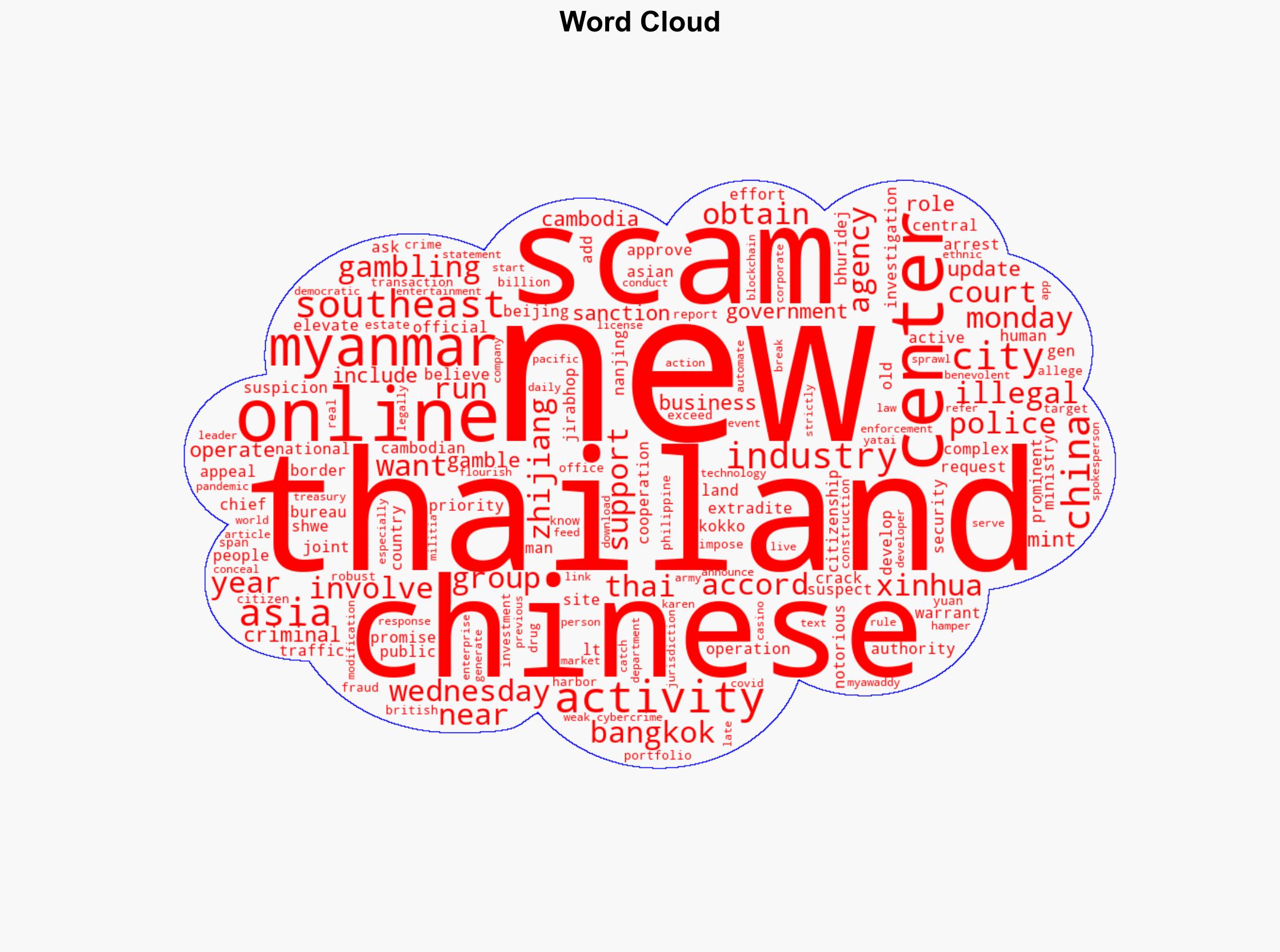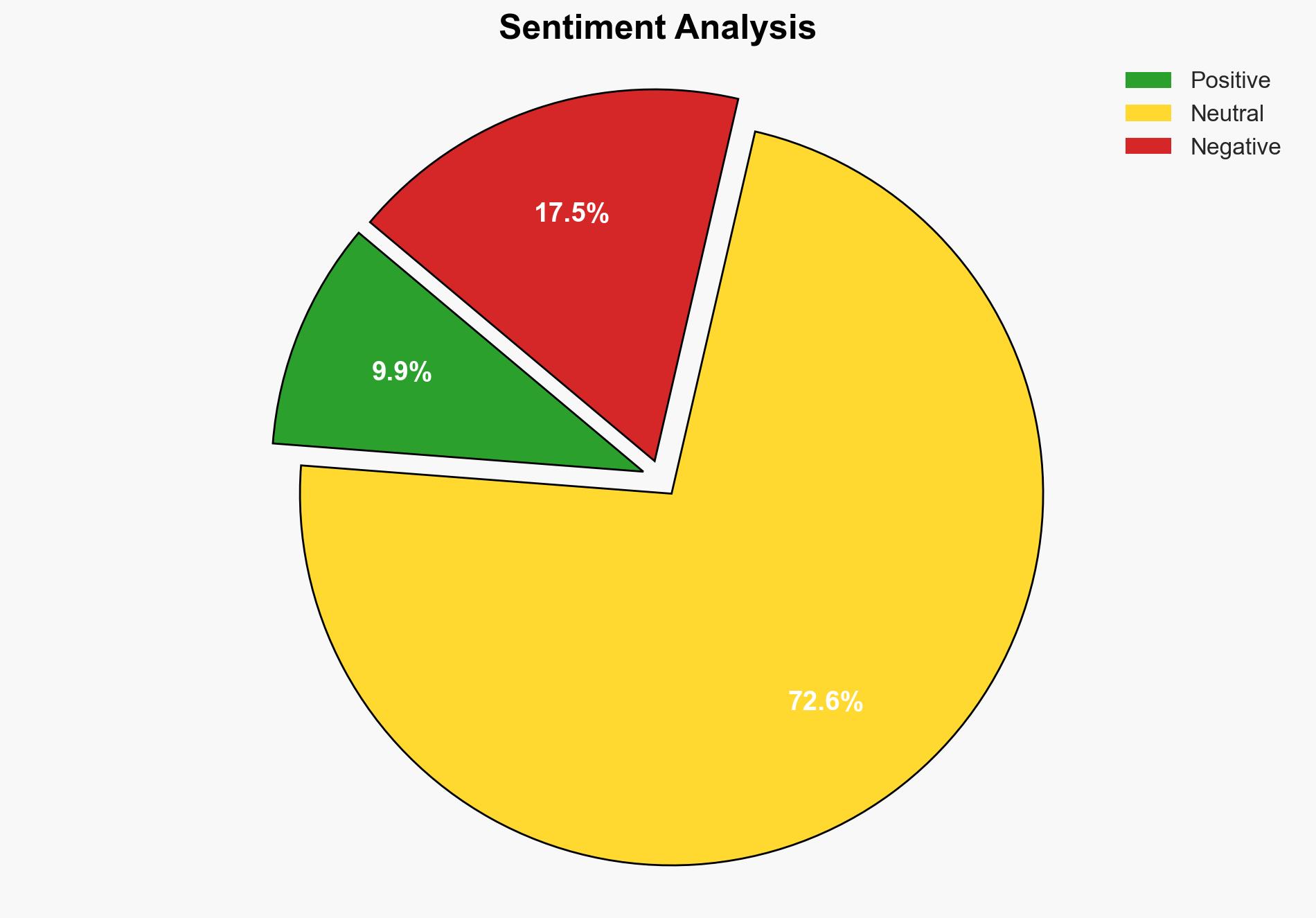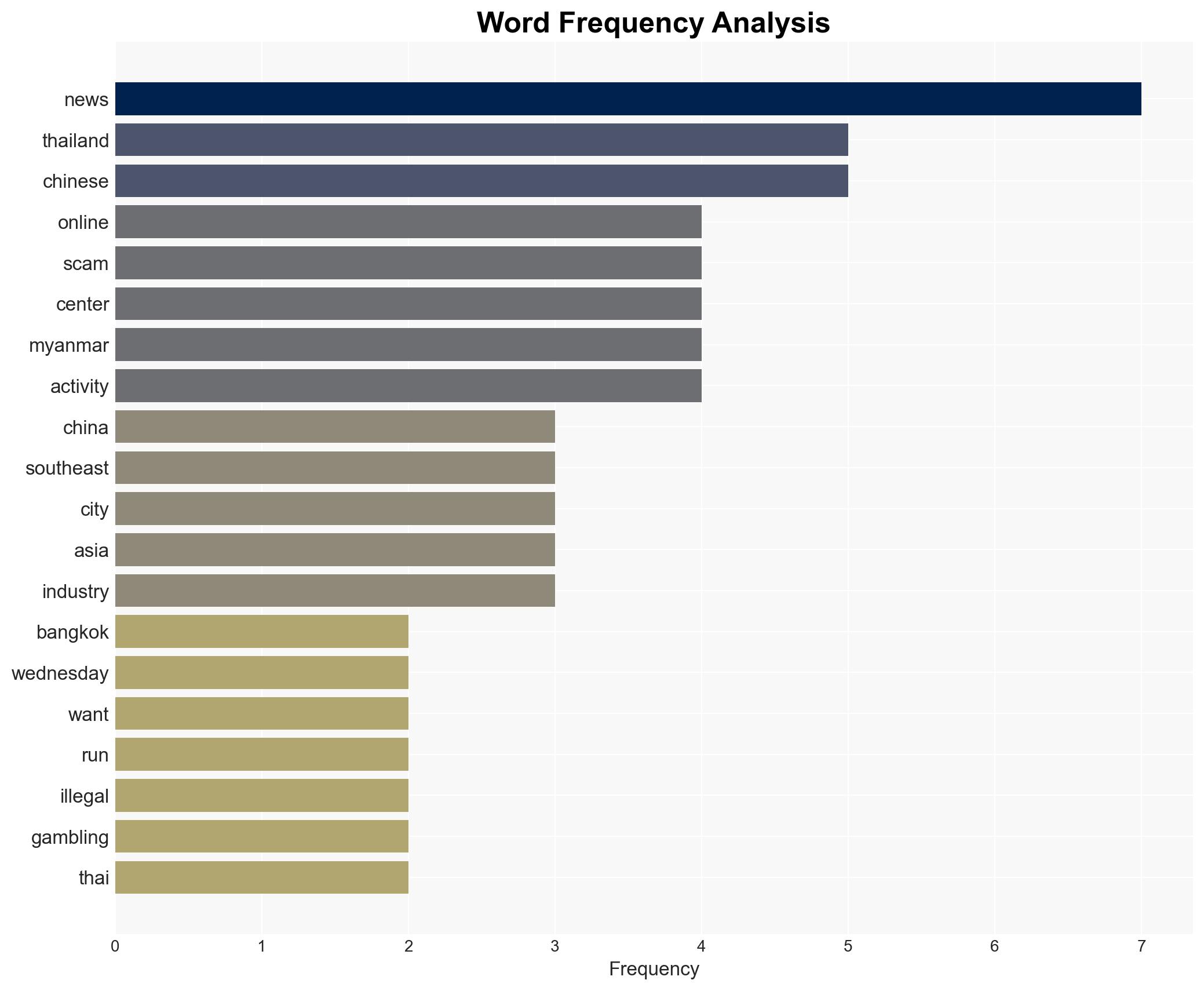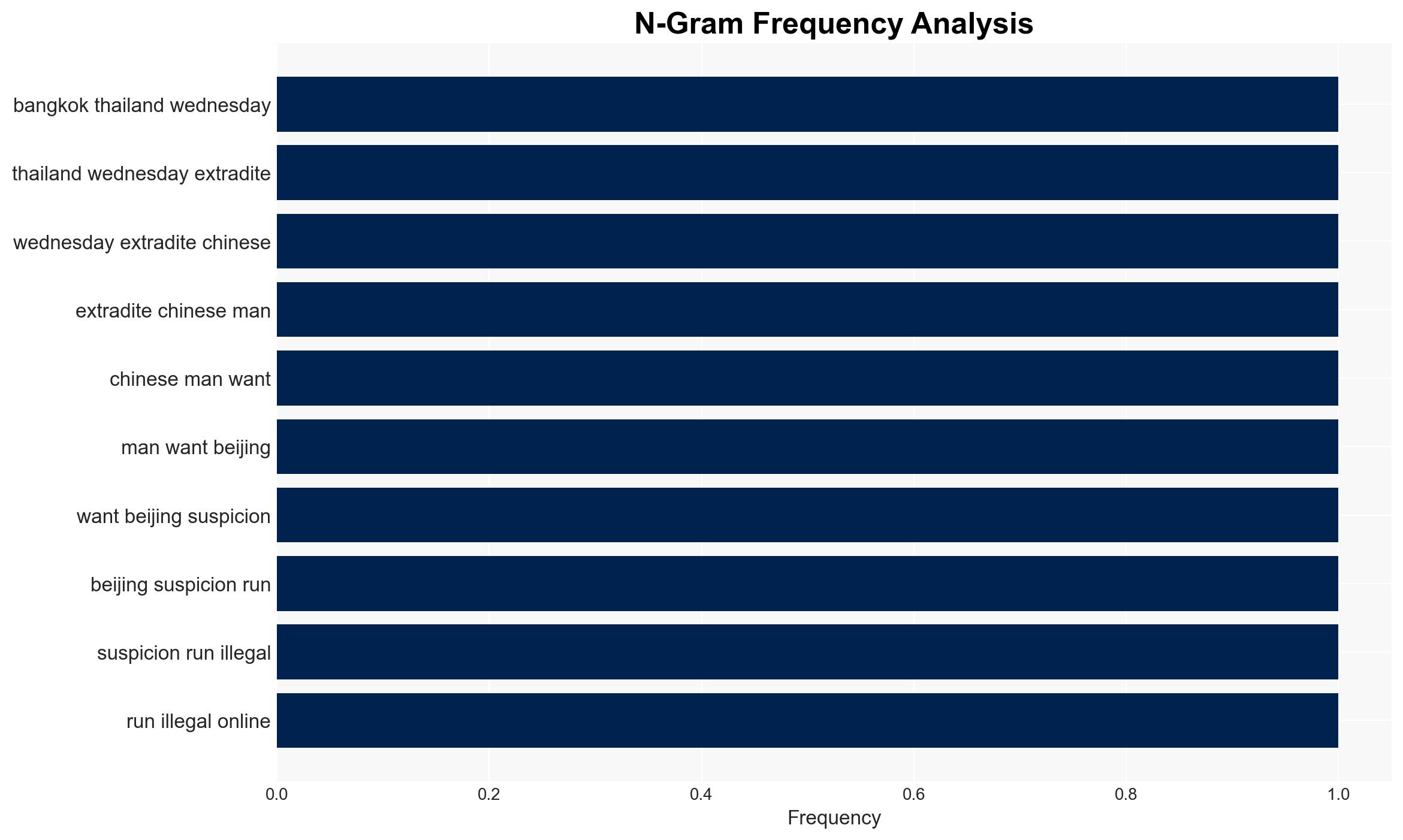Thailand extradites a suspect in illegal gambling operations to China – Livemint
Published on: 2025-11-13
AI-powered OSINT brief from verified open sources. Automated NLP signal extraction with human verification. See our Methodology and Why WorldWideWatchers.
Intelligence Report: Thailand extradites a suspect in illegal gambling operations to China – Livemint
1. BLUF (Bottom Line Up Front)
The extradition of Zhijiang from Thailand to China is a significant move in the regional crackdown on illegal gambling and online scams. The most supported hypothesis is that this extradition is part of a broader strategic cooperation between Thailand and China to combat transnational crime networks. Confidence Level: Moderate. Recommended action includes enhancing regional law enforcement collaboration and monitoring potential retaliatory actions by criminal networks.
2. Competing Hypotheses
Hypothesis 1: The extradition is primarily a result of increased bilateral cooperation between Thailand and China to address illegal gambling and cybercrime, reflecting a strategic alignment in law enforcement priorities.
Hypothesis 2: The extradition is a tactical move by Thailand to appease China, possibly influenced by diplomatic or economic incentives, rather than a genuine commitment to combatting illegal activities.
Assessment: Hypothesis 1 is more likely given the context of regional crime proliferation and the explicit statements from Thai and Chinese officials about joint efforts. However, the possibility of diplomatic motivations cannot be entirely dismissed, given Thailand’s geopolitical positioning.
3. Key Assumptions and Red Flags
Assumptions: It is assumed that both Thailand and China are motivated by a genuine desire to curb illegal activities. It is also assumed that Zhijiang’s extradition will lead to actionable intelligence on broader networks.
Red Flags: Potential bias in reporting due to reliance on official statements. Deception indicators include the possibility of Zhijiang’s activities being downplayed or misrepresented by involved parties.
4. Implications and Strategic Risks
The extradition may lead to increased scrutiny and pressure on other criminal networks operating in Southeast Asia, potentially disrupting their operations. However, it could also provoke retaliatory actions, including cyberattacks or increased criminal activity in less regulated areas. Economically, enhanced cooperation could lead to improved investment climates if crime rates decrease.
5. Recommendations and Outlook
- Strengthen regional law enforcement collaboration, particularly in intelligence sharing and joint operations.
- Monitor developments for potential retaliatory actions by criminal networks.
- Best-case scenario: Successful dismantling of significant crime networks, leading to improved regional security.
- Worst-case scenario: Retaliatory actions destabilize local economies or escalate into broader conflicts.
- Most-likely scenario: Gradual improvement in regional crime control with intermittent disruptions.
6. Key Individuals and Entities
Zhijiang (suspect), Lt. Gen. Jirabhop Bhuridej (Thailand Central Investigation Bureau), Chinese Ministry of Public Security.
7. Thematic Tags
Regional Focus: Southeast Asia, China-Thailand Relations, Transnational Crime, Cybercrime
Structured Analytic Techniques Applied
- Causal Layered Analysis (CLA): Analyze events across surface happenings, systems, worldviews, and myths.
- Cross-Impact Simulation: Model ripple effects across neighboring states, conflicts, or economic dependencies.
- Scenario Generation: Explore divergent futures under varying assumptions to identify plausible paths.
Explore more:
Regional Focus Briefs ·
Daily Summary ·
Methodology





